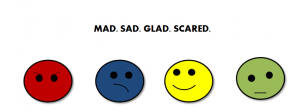
At the end of each year it’s pretty typical for most of us to celebrate (or not) another year gone by and get all hopeful (or not) for the one to come, but we often skip over saying goodbye to the previous year in a meaningful way before greeting the new one.
The closing of a year can be a perfect opportunity to review the past 12 months and reflect back on all that we accomplished, experienced, contributed, missed out on, made happen, didn’t make happen, were surprised by, and grateful for. And no good annual review would be complete without including the disappointments, losses, and fears.
We oftentimes get so focused on forwarding the action, but forget that deepening the learning is just as valuable. The more we learn and grow, the more in tune we get with our true nature, which then allows us to make choices that genuinely reflect what really matters most to us. And the the more we make authentic choices, the happier, more relaxed, and productive we become. Sometimes we need to slow down in order to become more efficient and effective.
The best way to look back is to get grounded in the present. Give yourself permission to take time out to focus on your year. 2019 was yours, and yours only, and the best way to connect with your year is to connect with yourself in the here and now. Make it a priority. Make you a priority.
I posted a Year in Review blog last December that I’ve been doing with my coaching clients, and myself, for several years, and find it a helpful way to give structure to looking back.
A few tips for reviewing your year:
I go through my calendar to refresh my memory of all that went on – the events I attended, the places I went, the people I coached, the friends I spent time with, the people I did activism with, the conferences and trainings I attended, colleagues I collaborated with, the workshops and trainings I gave. And then I do some journaling on what shows up from reviewing my cal.
I also go through my Facebook where the bulk of my social media hangout is, and it’s a huge resource for my year. I go through my morning pages (journal), my Amazon and Audible order history for books I bought, and my library for the ones I borrowed.
You might have apps or notes you keep that are good to mine as well.
My theme for 2019 was, “Important Not Urgent”, which is one of the four quadrants in Stephen Covey’s principles of effective time management matrix from his book, “The Seven Habits of Highly Effective People.” This is the most overlooked quadrant despite its power to transform your life. This is where creativity and flow happen. This is where coaching and learning live. Also relationship-building, increasing our emotional intelligence, preparing and planning, introspection, focus, meditation, and mindfulness hang out here. All great leaders make quadrant four a priority, even if they don’t use this language or this matrix. This is The Zone, so make time for it.
I haven’t decided yet what my theme will be for next year, but I’m heading to a cabin in the snow next weekend and bringing my poster paper and colored markers for mind-mapping. That, along with some journaling, and taking long winter walks with the pooch to stir my imagination and connect with my inner world.
After you reflect on and close out your year, take time out to get in touch with what you want for this coming year. For a fun and powerful exercise filled with prompts, check out my December Holiday Letter from last year. Then you can start setting your intentions for 2020 as well as deciding on a theme. It can be a word or phrase – something you can anchor your year to as you go along.
As you unpack 2019, it’s ok to get emotional. In fact, it’s a good time to practice taking time out to feel your feelings. We often forget that even if we’re disconnected from our emotional life, we’re still having feelings. So, go ahead and put your heart into this time of introspection. Allow whatever wants to come up to just surface.
Start with the fundamentals by noticing when you are mad, glad, sad, or scared and know that if you actually feel the feeling, it will pass – the good ones and the hard ones. They all pass through us.

We are emotional beings, but it takes effort and practice to connect with our inner world. And if we don’t allow ourselves to have our feelings, then our feelings will surely have us, which can result in generalized anxiety, lack of focus, a state of reactivity, procrastination, depression, perpetual frustration and anger, and frequent misunderstandings with others.
In memory and honor of the profoundly observant Pulitzer prize-winning poet, Mary Oliver, who died this year, her simple words are some of the best advice around:
“Instructions for living a life:
Pay attention.
Be astonished.
Tell about it.”